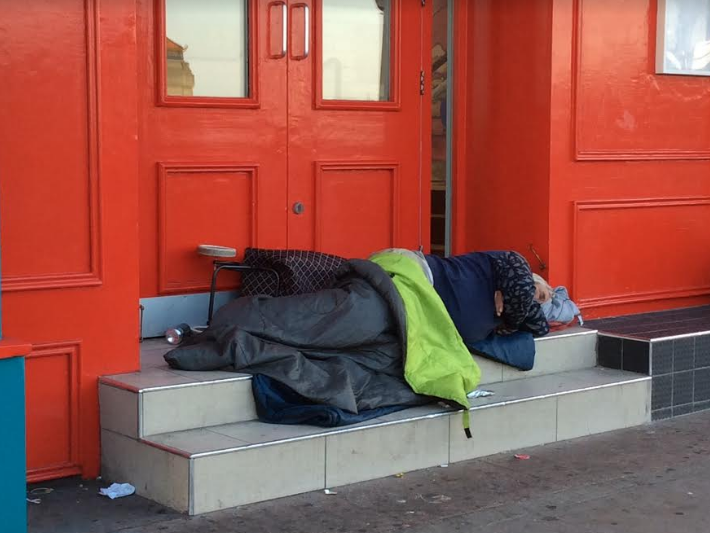Hundreds of rough sleepers will need to move out of halls of residence and other emergency housing as students return to Brighton University and other contracts run out next month.
Councillors have agreed to find alternative places for them to stay as part of the effort to prevent the spread of the coronavirus.
In all, Brighton and Hove City Council will find new places or extend existing contracts to house almost 450 people who were sleeping rough or at risk of becoming rough sleepers.
A council committee agreed today (Friday 14 August) to ensure that they have somewhere to stay under the coronavirus emergency provisions until at least the end of December.
The council’s Special Policy and Resources Committee was told that the cost would be £1.5 million by the end of December and almost £2.8 million by the end of next March.
The council has received £66,000 so far from the government towards the cost of keeping rough sleepers off the streets during the coronavirus crisis.
And a bid is being submitted to the government for more covid-19 funding to help meet the cost of places to stay until then end of the financial year next March.
The council does not expect to hear whether its bid has succeeded until next month but needs to agree contracts quickly if rough sleepers are to move in by then.
The “virtual” committee meeting was also told that work was under way to move some people into longer-term housing and to “reconnect” others with their home town.
But the flow of new rough sleepers was about 10 a week – half the usual summer rate – and other factors could soon increase the numbers further.
These include rising unemployment, the end of the furlough scheme and an end to the moratorium on evictions by private landlords.
Conservative councillor Joe Miller said: “The level of rough sleeping and begging doesn’t appear to have gone down.
“I’m sure people are in accommodation but it doesn’t appear that rough sleeping has ended.”
The council’s interim executive director of neighbourhoods, communities and housing Rachel Sharpe said that people were still becoming homeless and not all beggars were rough sleepers.
Green councillor David Gibson said that some rough sleepers had rejected the offer of a room and a few had been evicted due to their behaviour.
Councillor Gibson, who jointly chairs the council’s Housing Committee, said: “We are able to still maintain our offer of shelter to everyone. Those in shelter have food supplied.
“There is far less need to beg for food and accommodation but people have other needs.”
He said that the council was sustaining its commitment to “no return to the streets” for those who had been rough sleeping.
Councillor Gibson added: “We need the resources, accommodation and support. We have a fantastic window of opportunity. We have been working with people and they’ve been better housed, their health’s improved and there’s a better chance of being able to provide them with something.
“But we simply haven’t got the resources confirmed from the government.”
Labour councillor Gill Williams said that the council had provided food, shelter and healthcare to many people and continued support was vital.
She said: “There has been very significant engagement with substance misuse and it has been very successfully dealt with.”
A progress report on housing rough sleepers is due to presented to the council’s Policy and Resources Committee at a meeting on Thursday 8 October.










So does this mean it will have cost about £5m so far this year?At this rate the Council should have kept Kings House and renamed it The Sanctuary and provided accommodation for all.